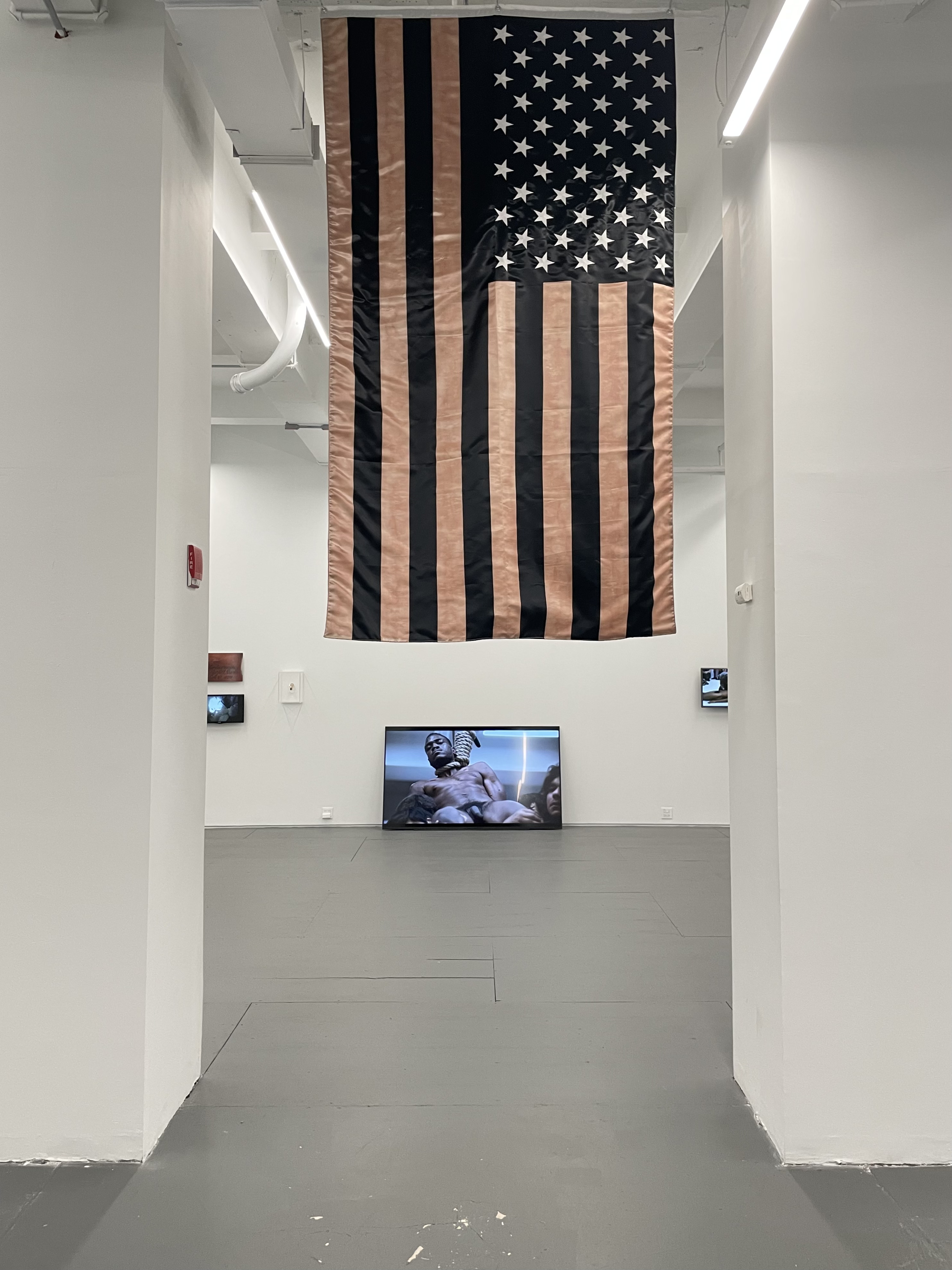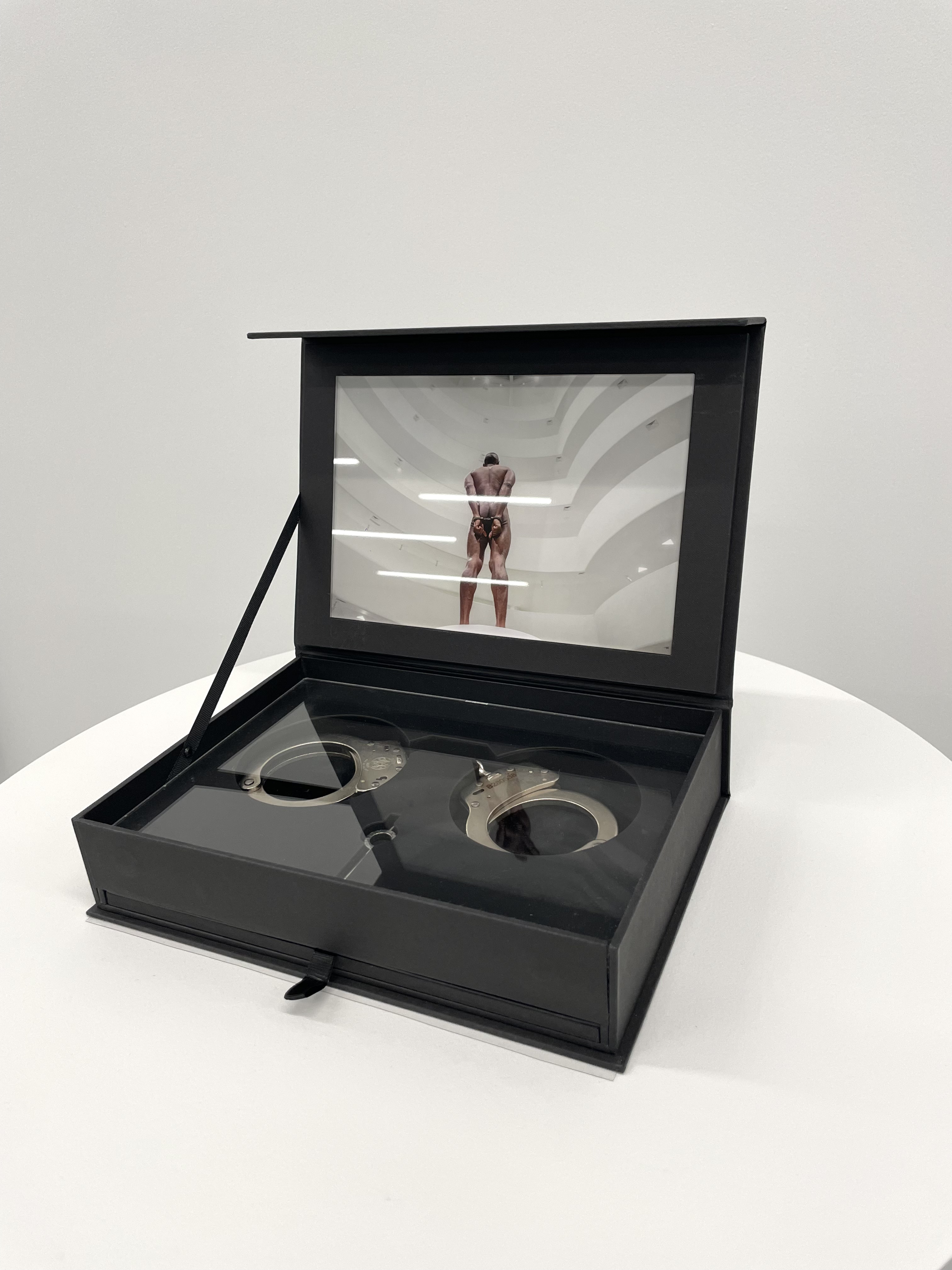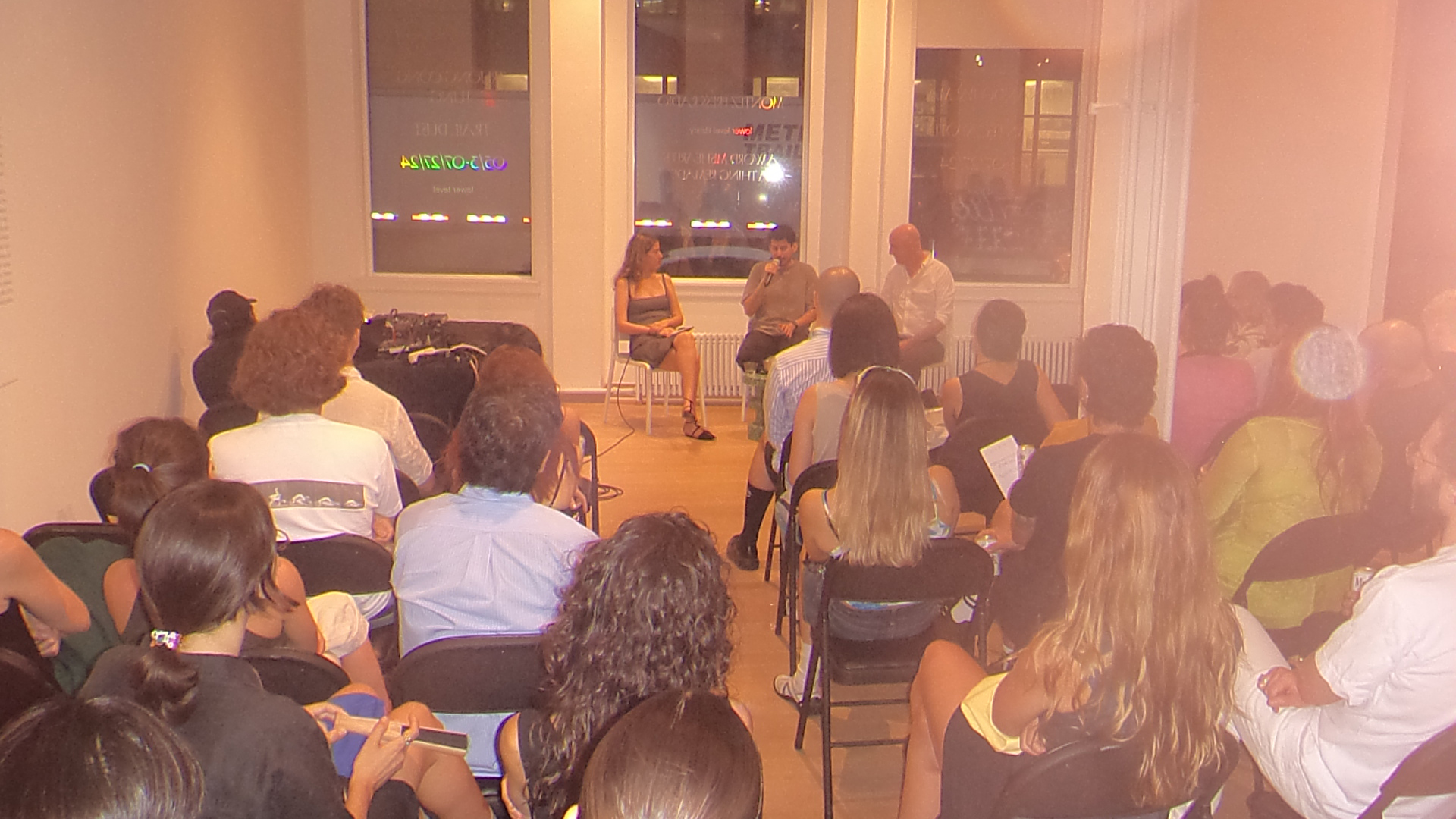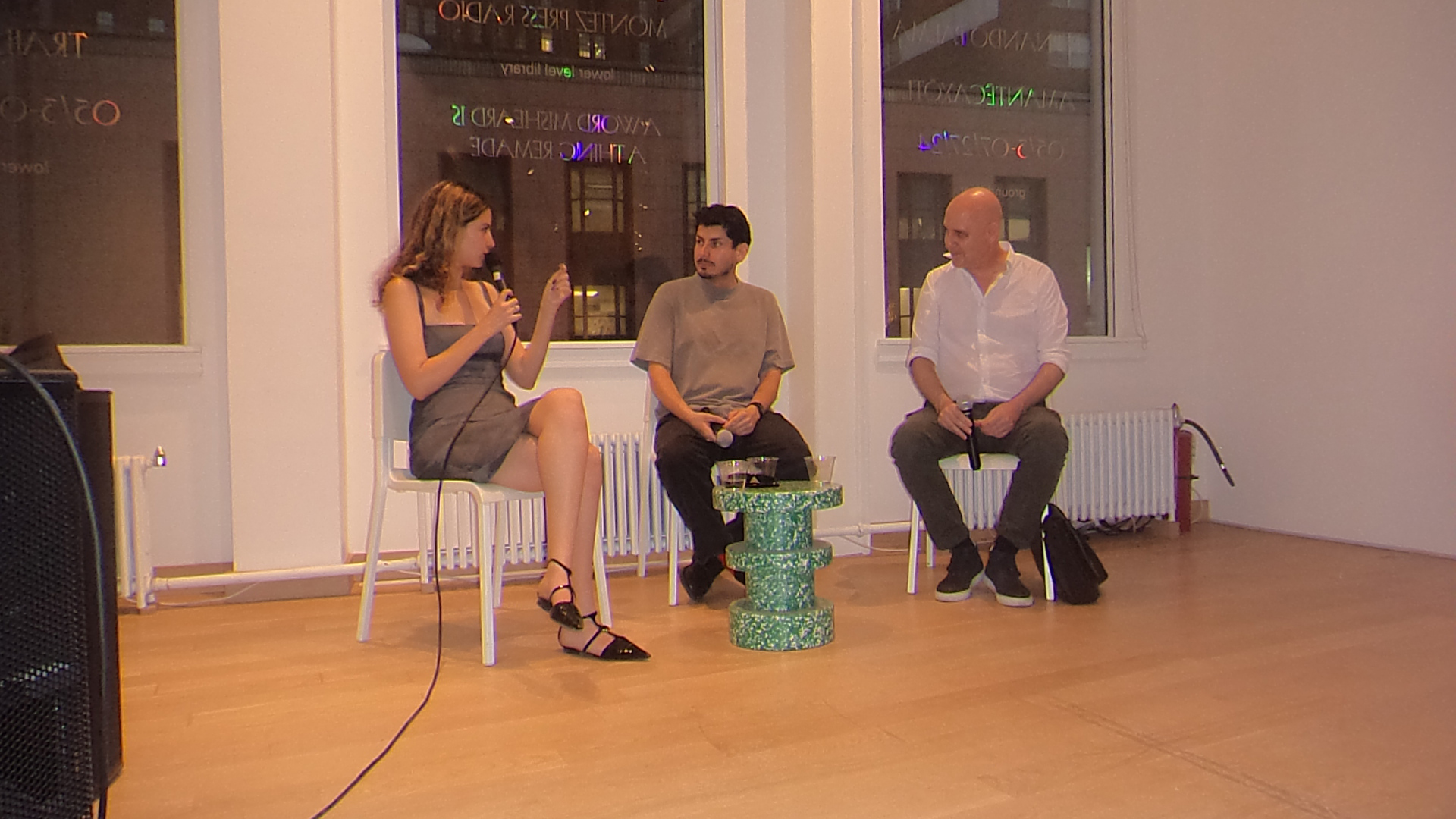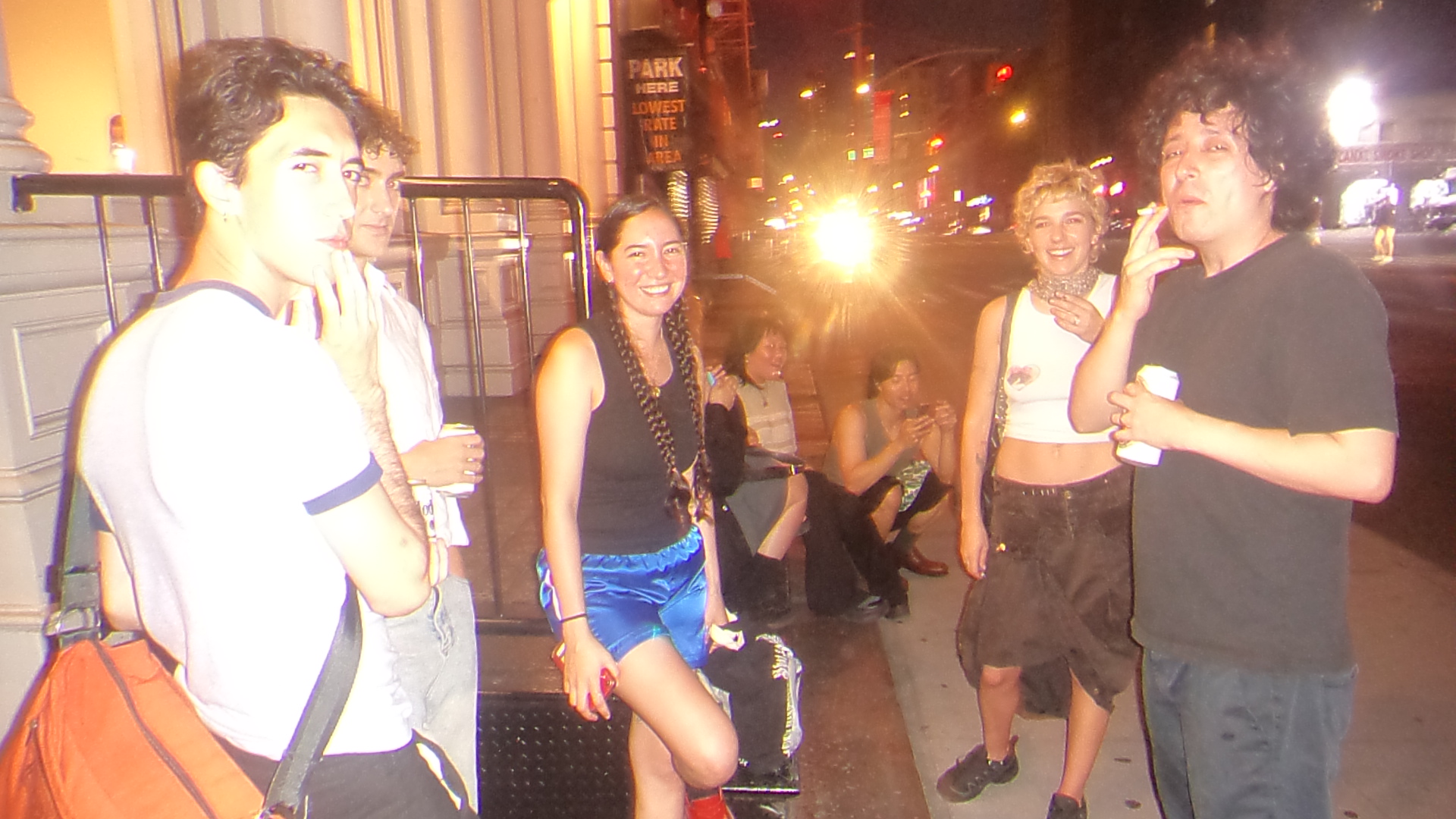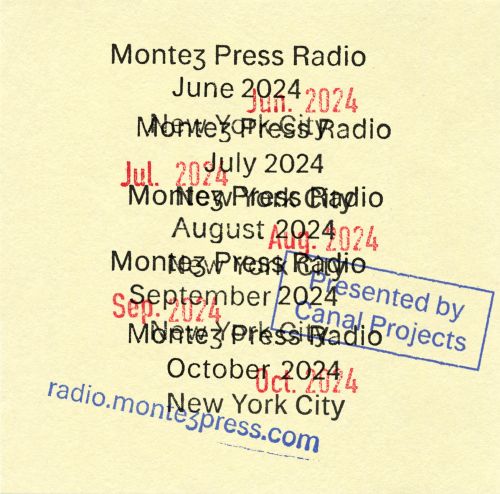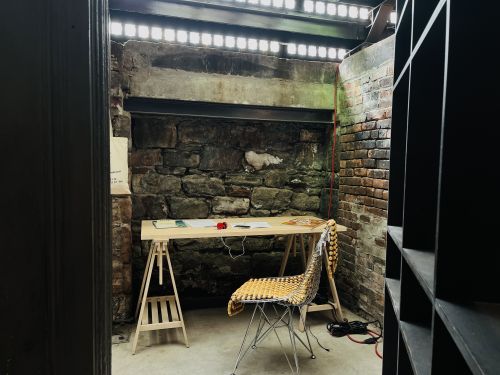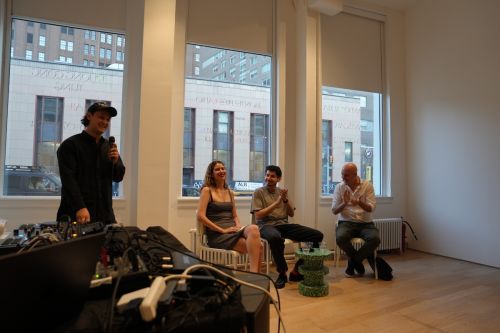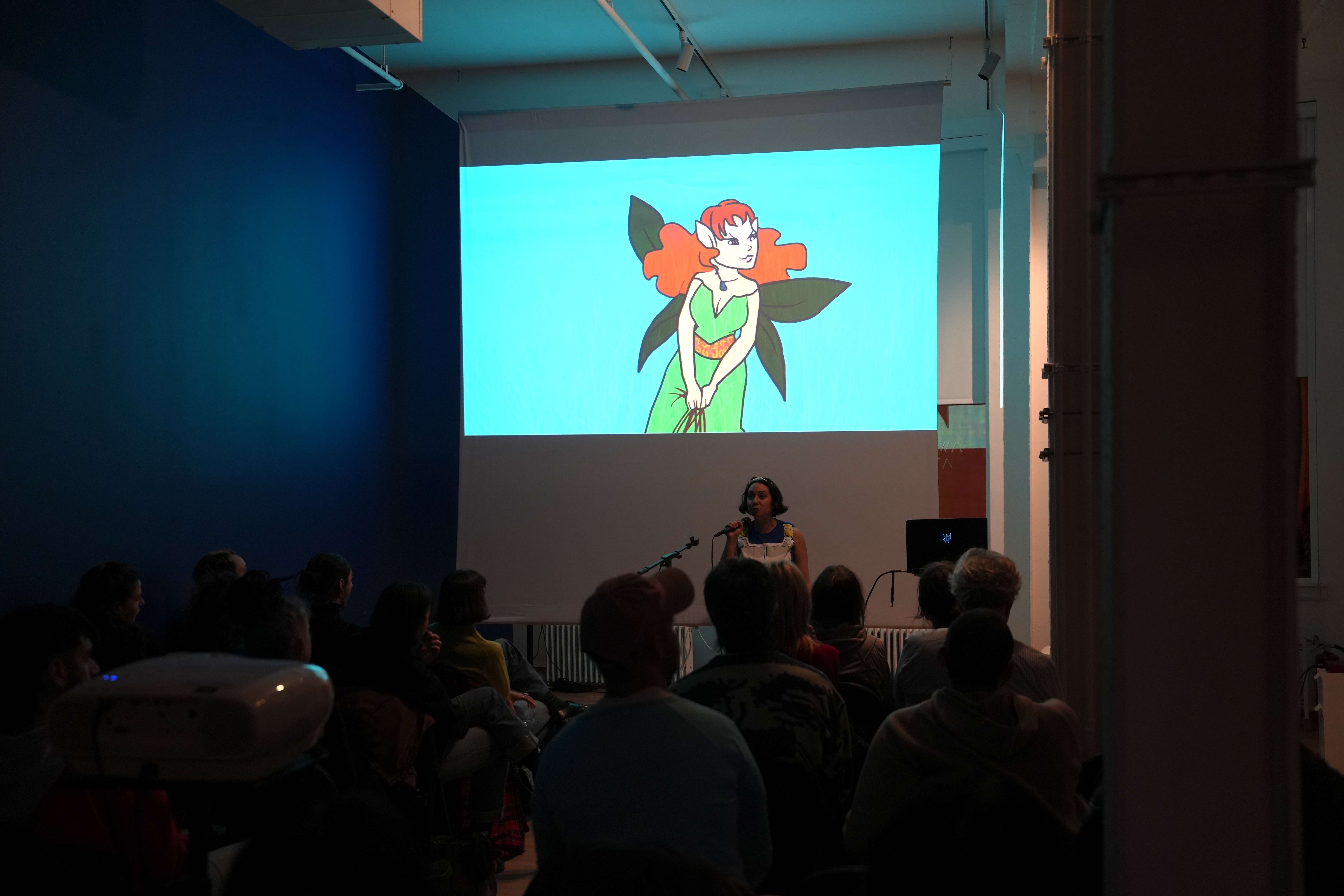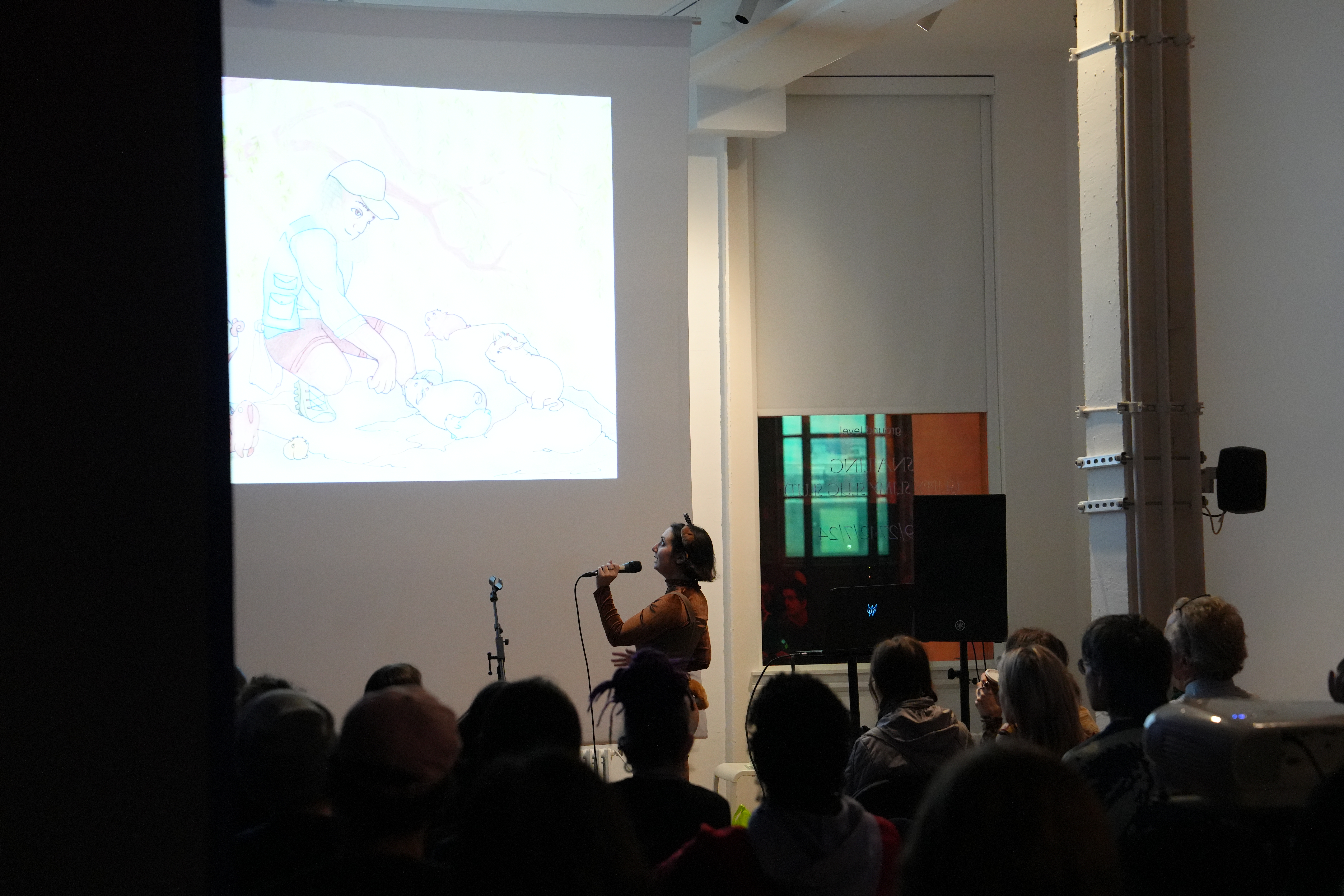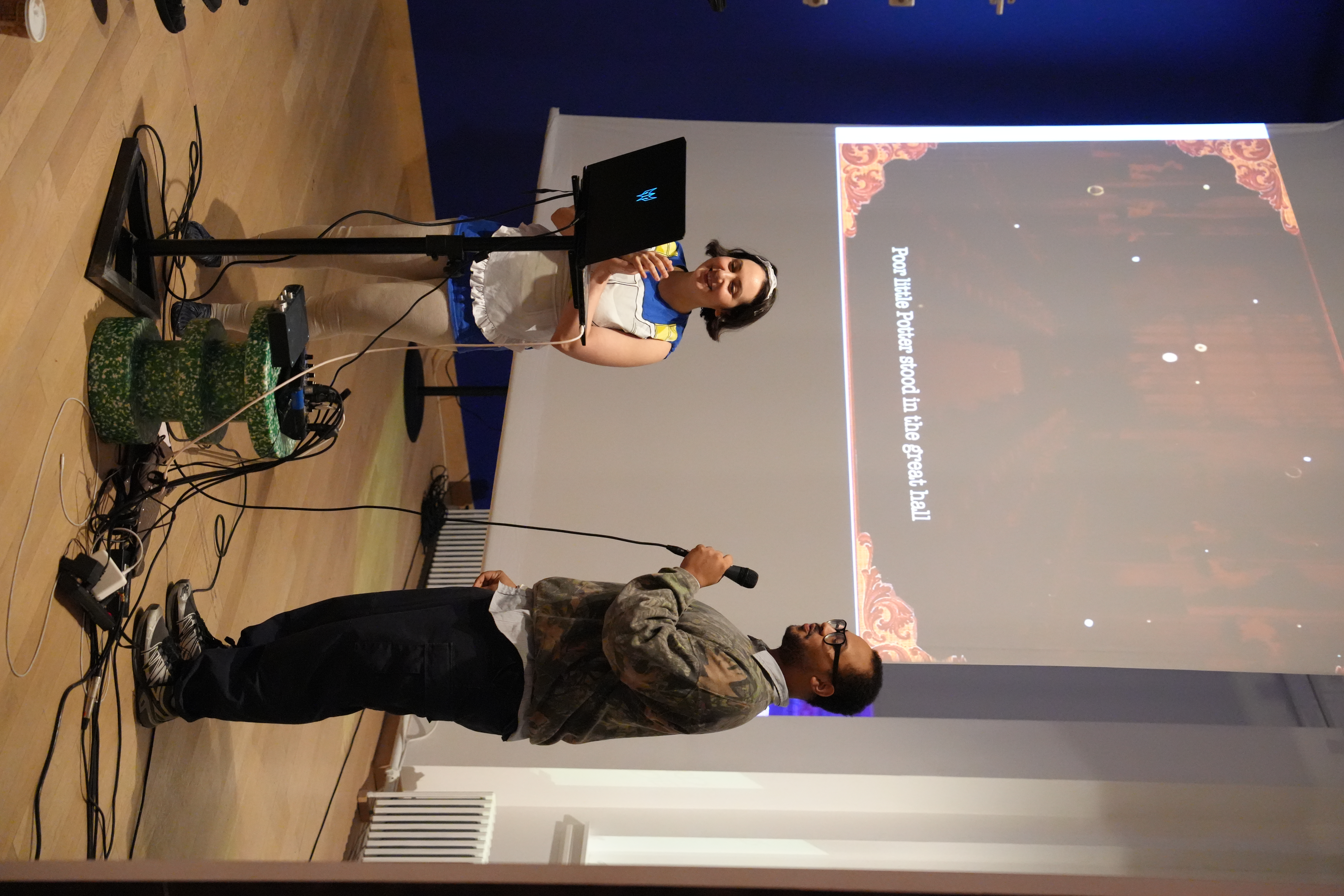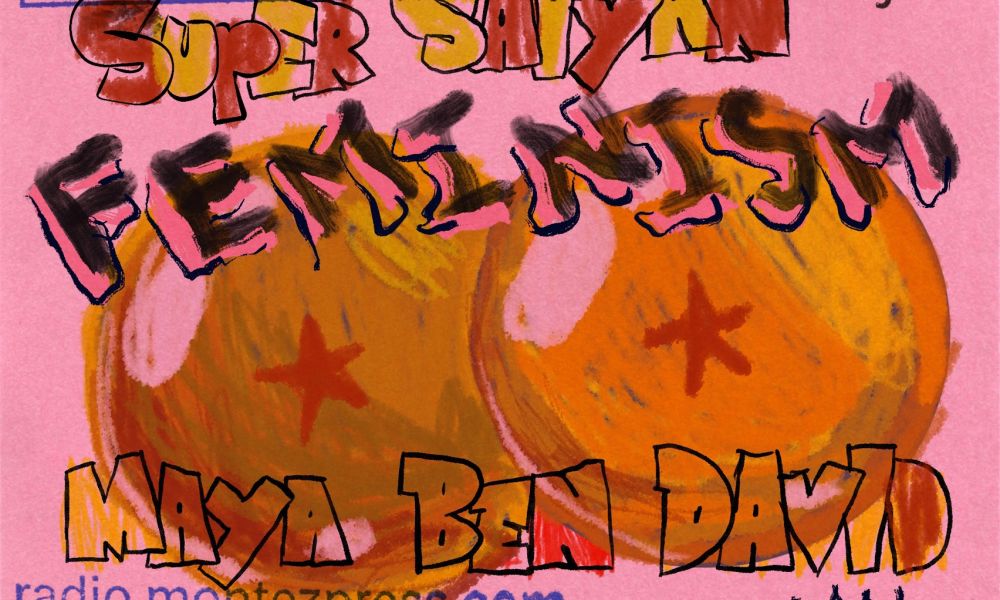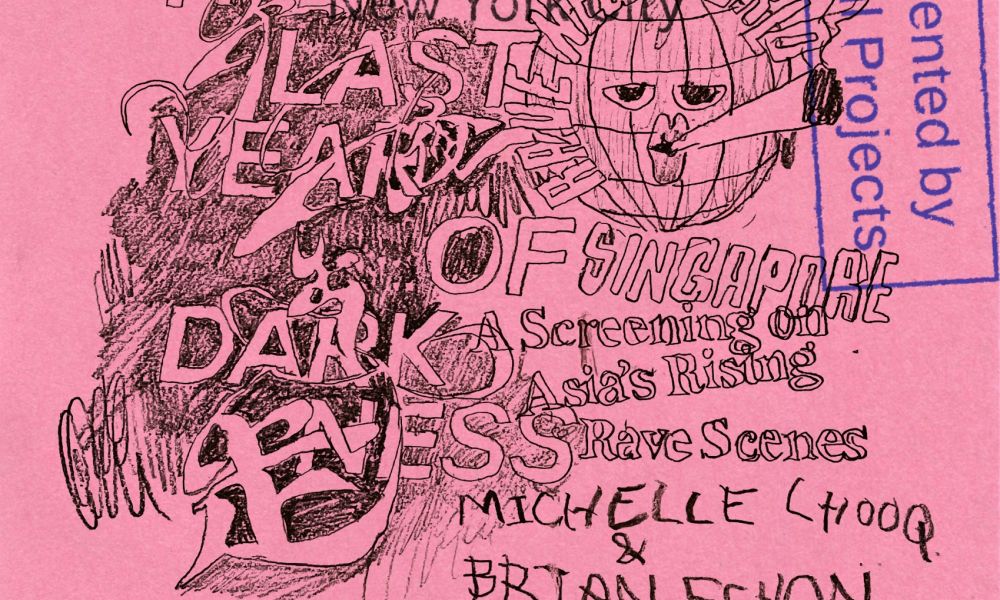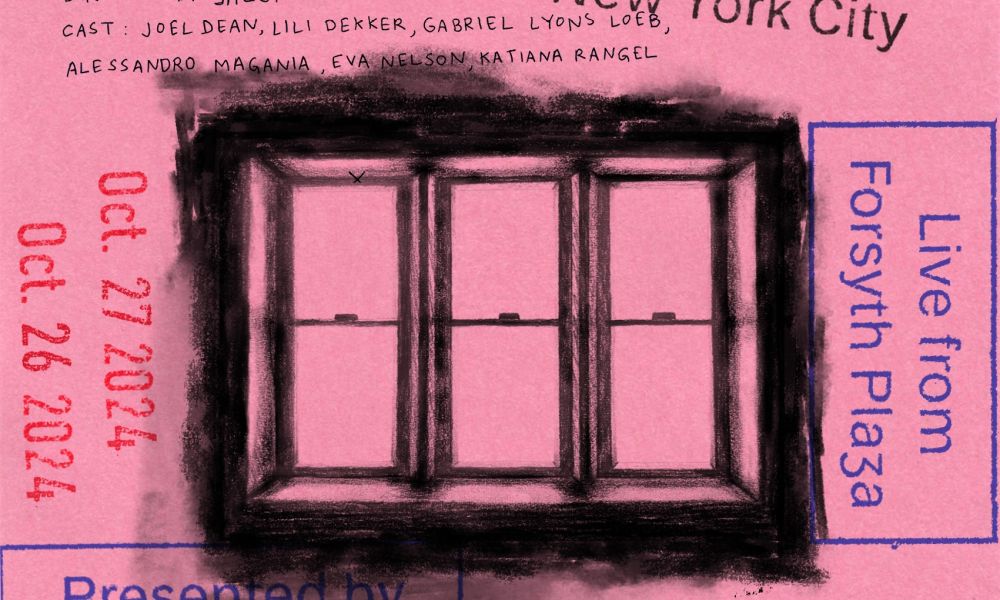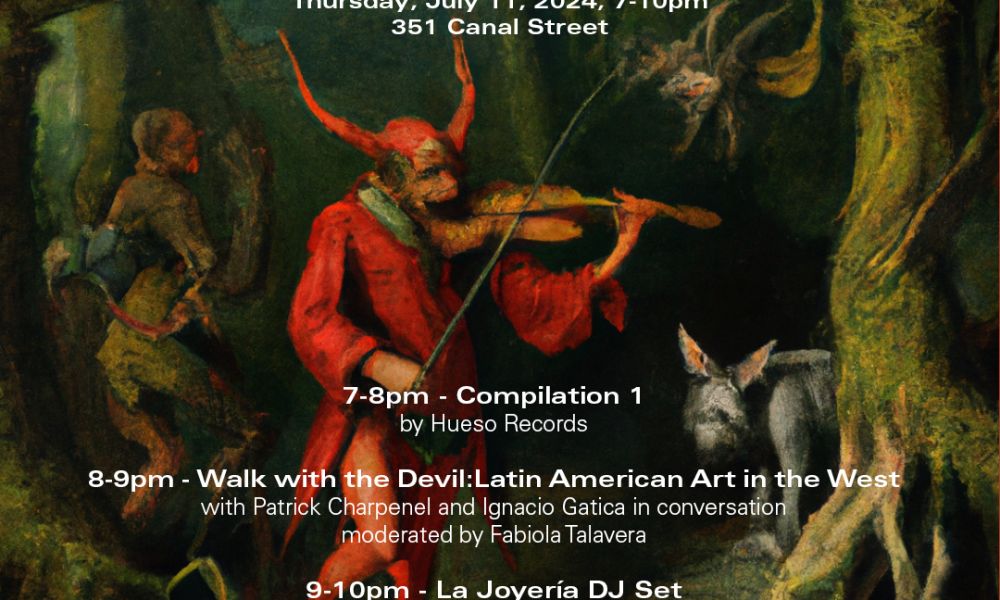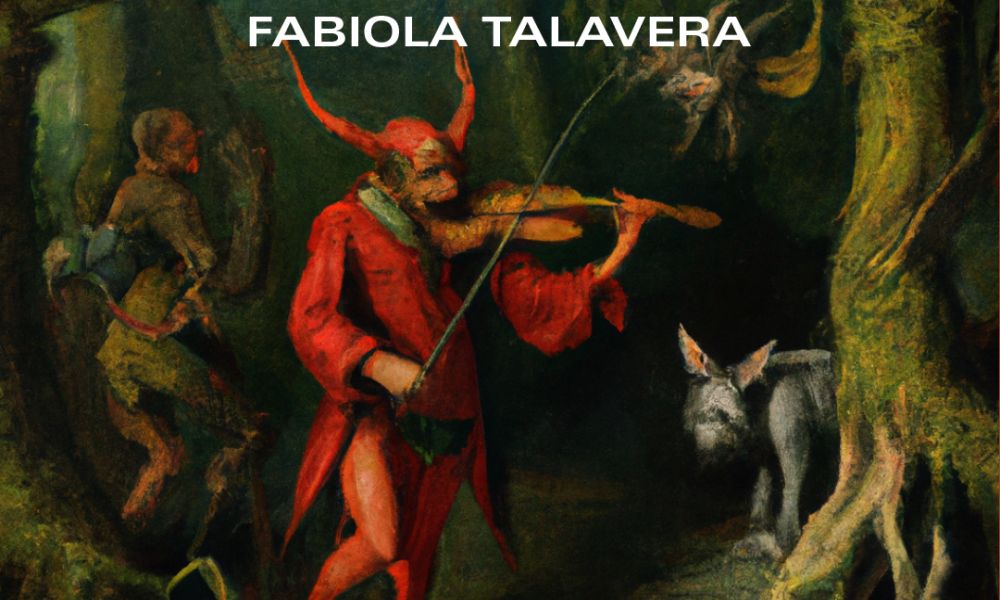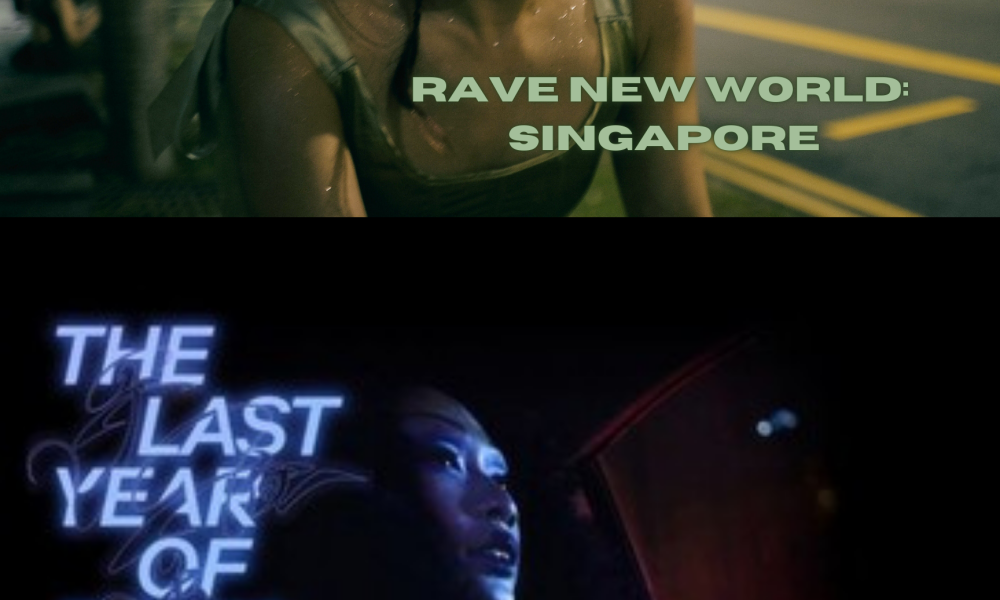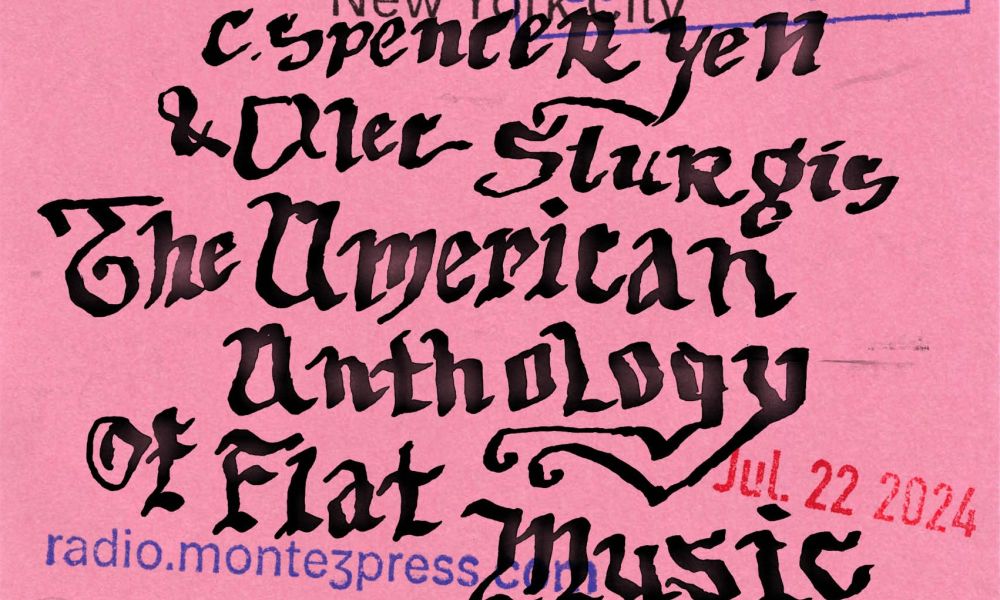Dancing in the Devil’s Den
by Fabiola Talavera, August 2024
Studio Visits
I ventured out to Brooklyn most days, where I found most artists’ studios are located in warehouse spaces, cooperative buildings and ample apartments shared among many. The visits were all conducted in Spanish. Although having this language in common, the accents, expressions and social conventions of each one denoted our distinct backgrounds and became part of our conversations.
Naomi Treistman created ceramic musical instruments and used the anthropomorphized figure of a house to reflect her ever-moving nature since she had left Peru.
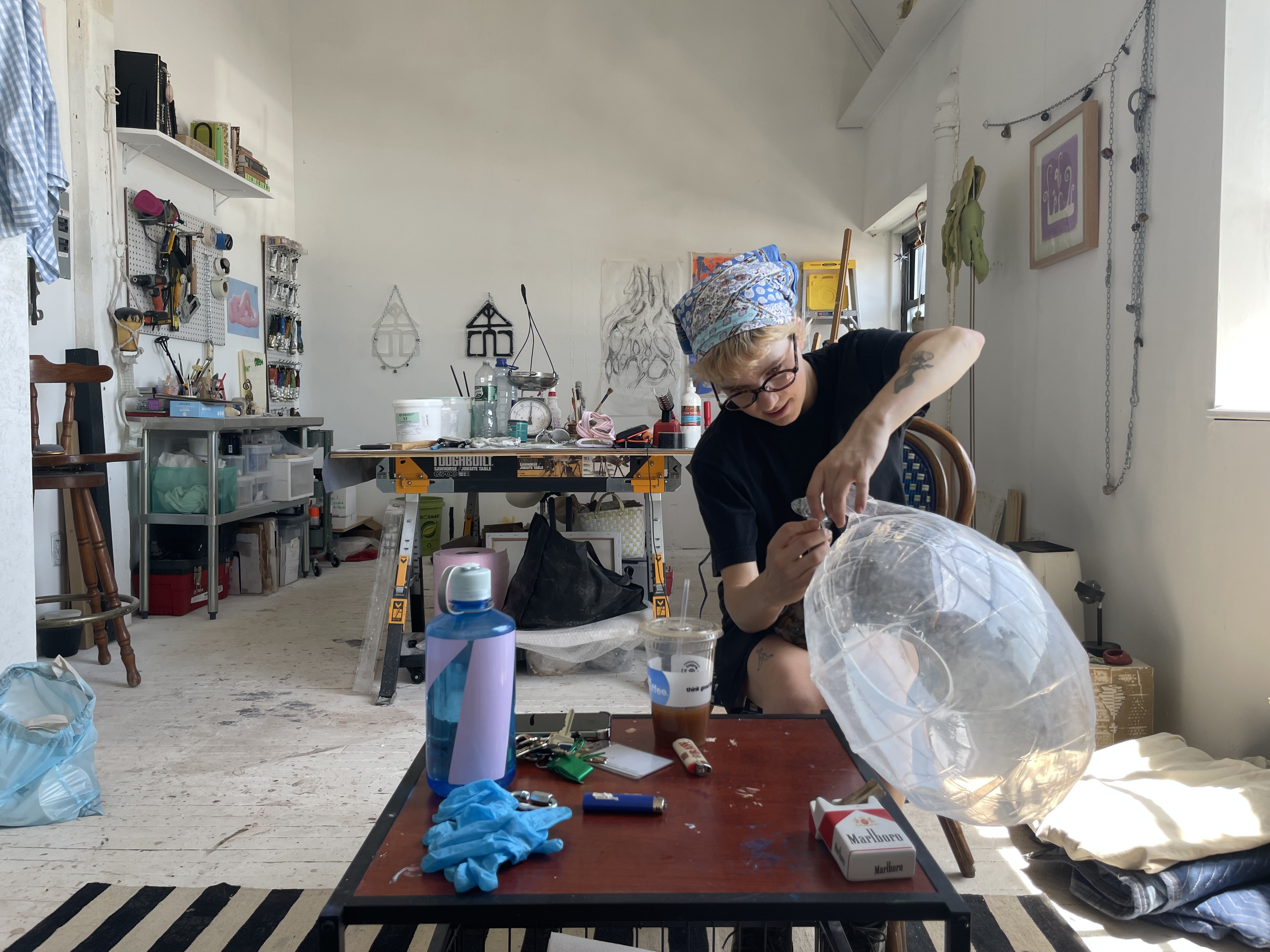
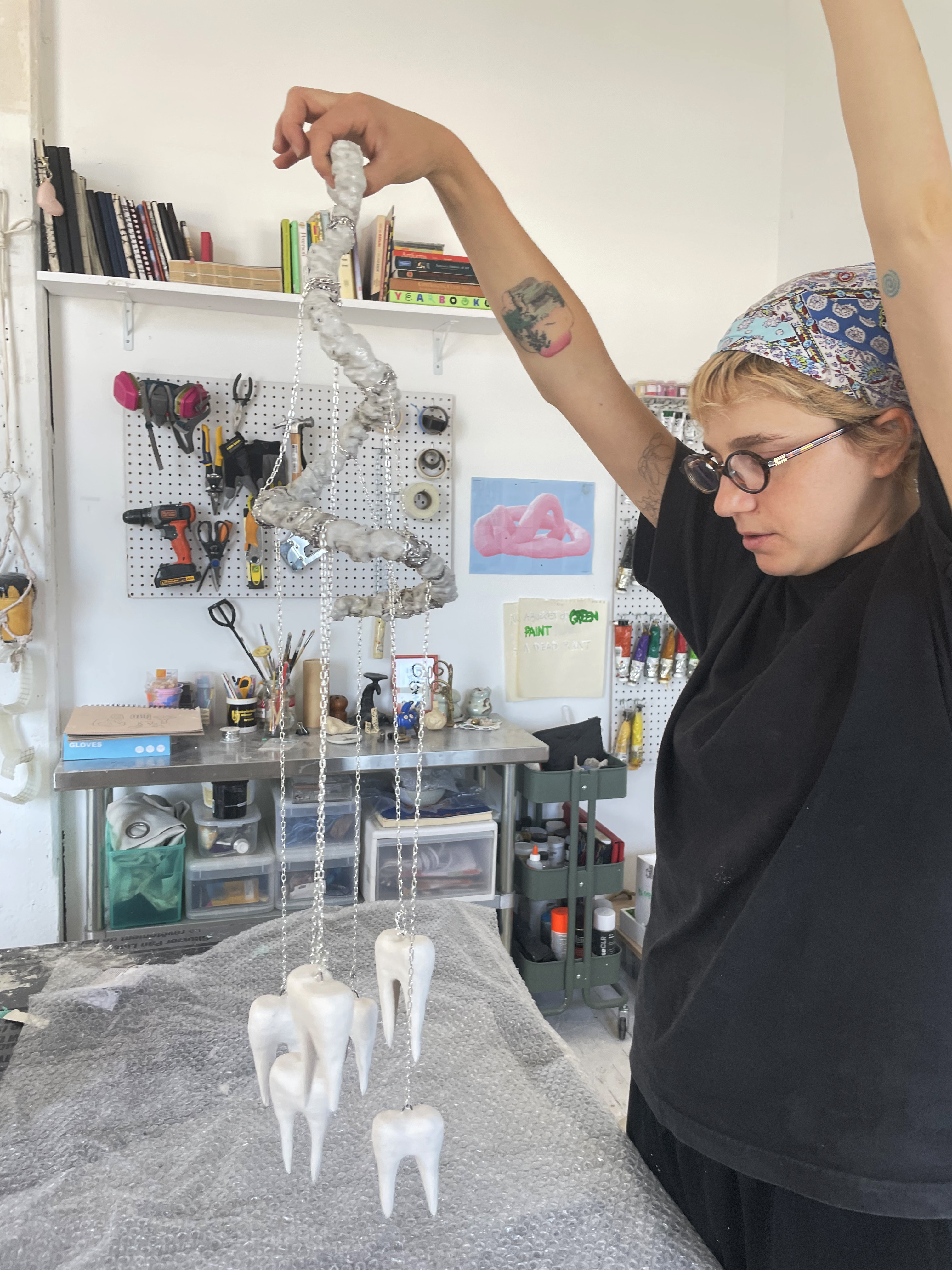
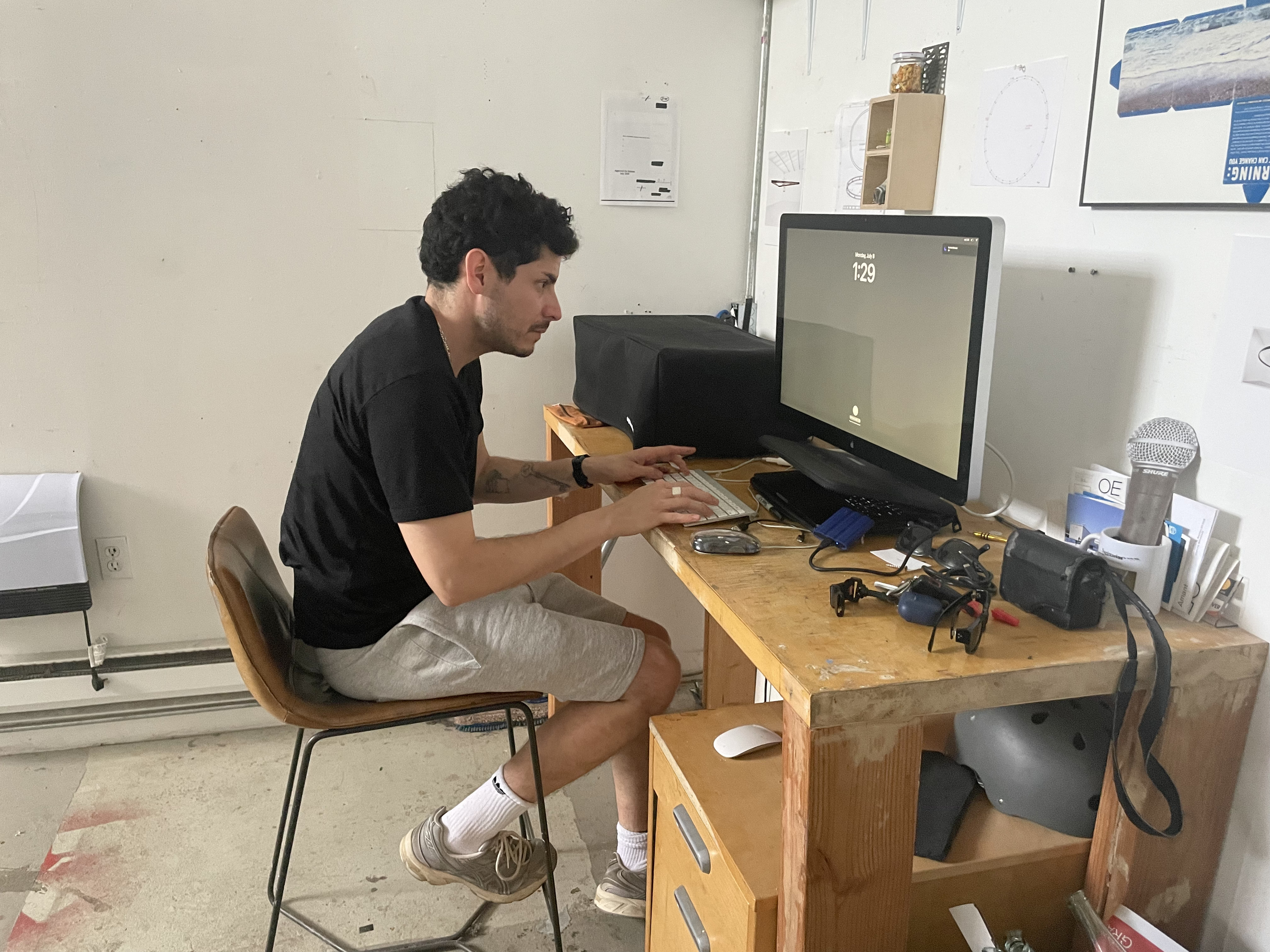
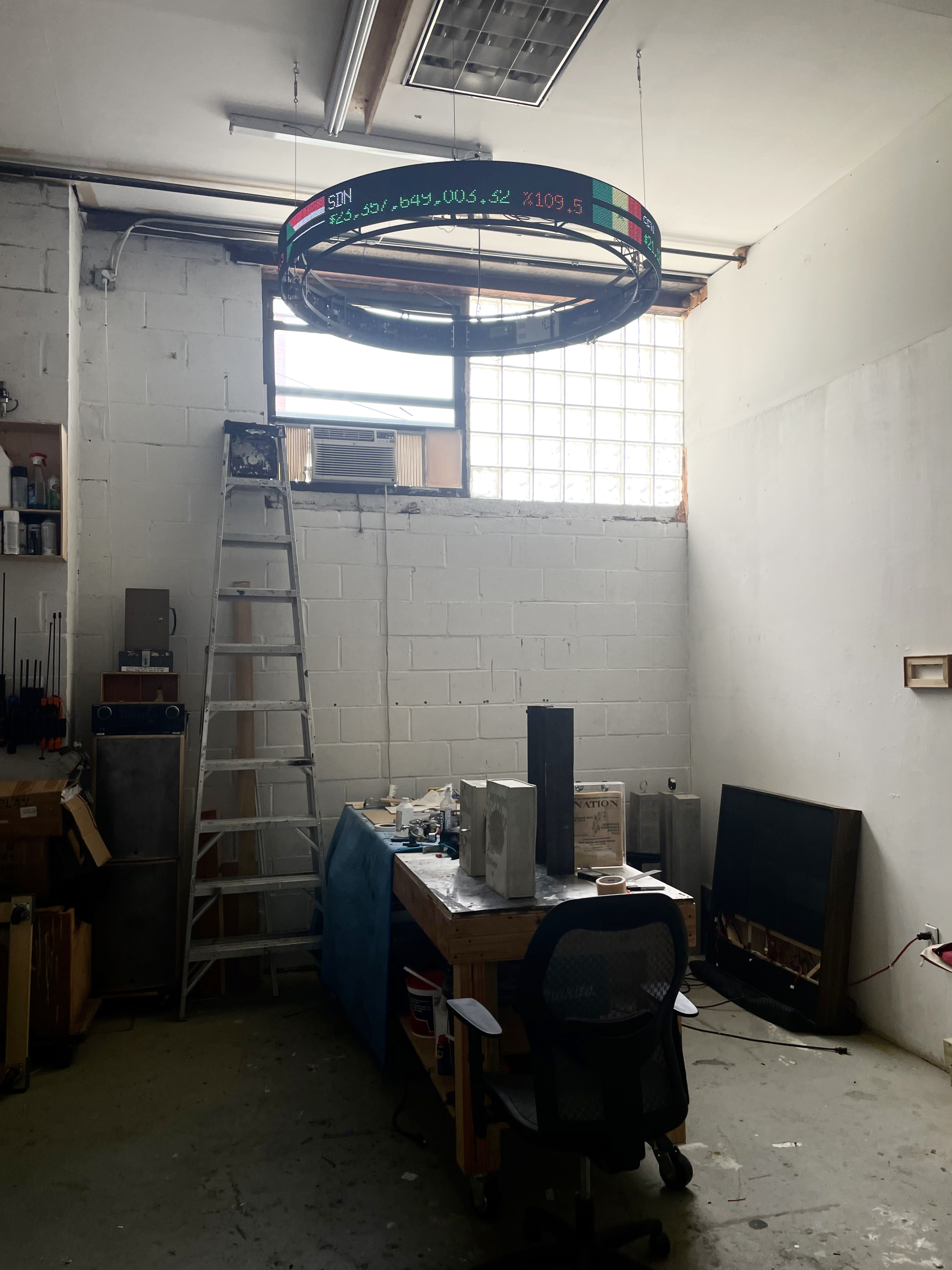
Mexican painter Maria Fragoso portrayed the faces of people around her and expressed through allegoric details the complex relationships she had formed in the past years in the US.
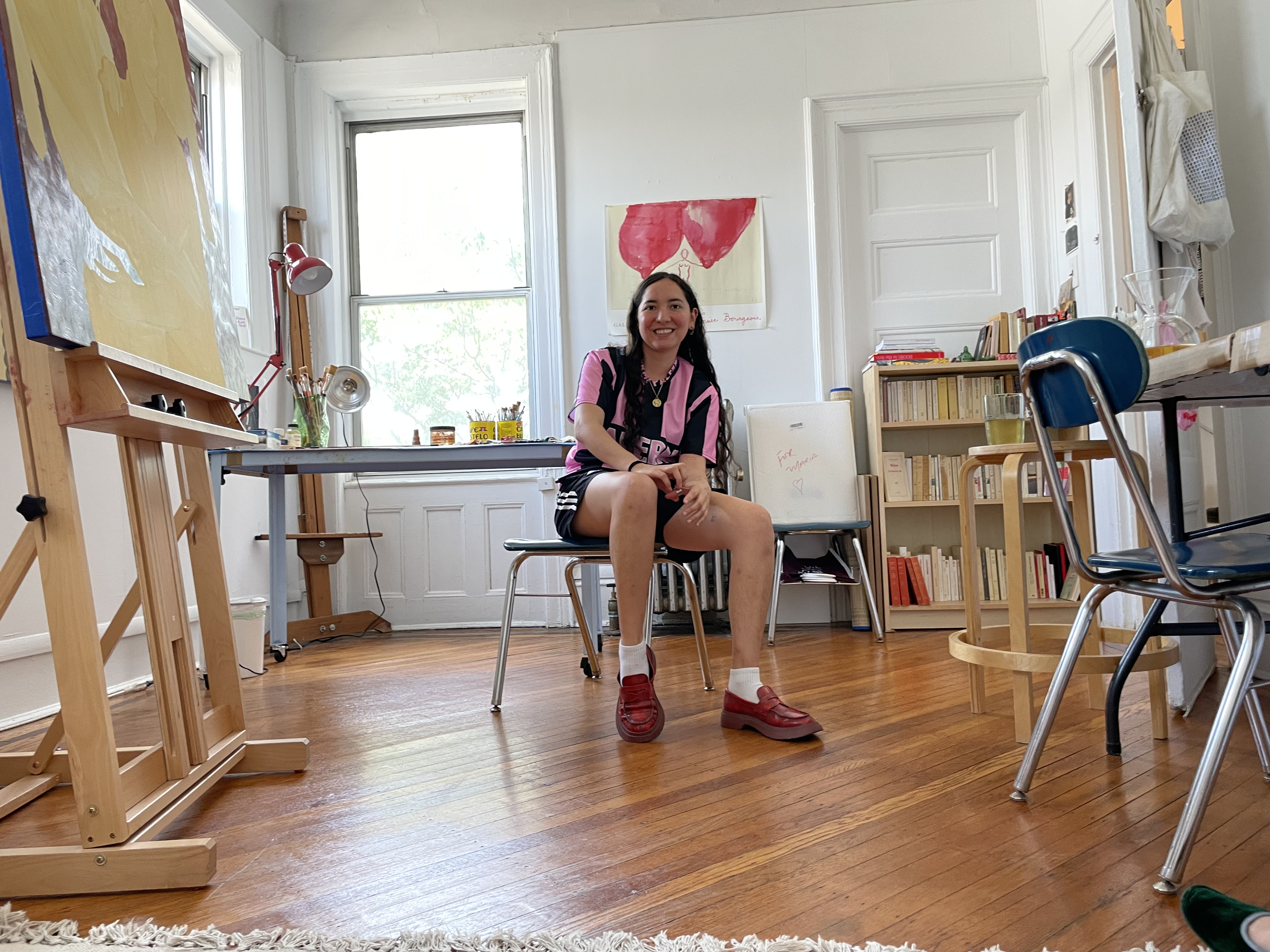
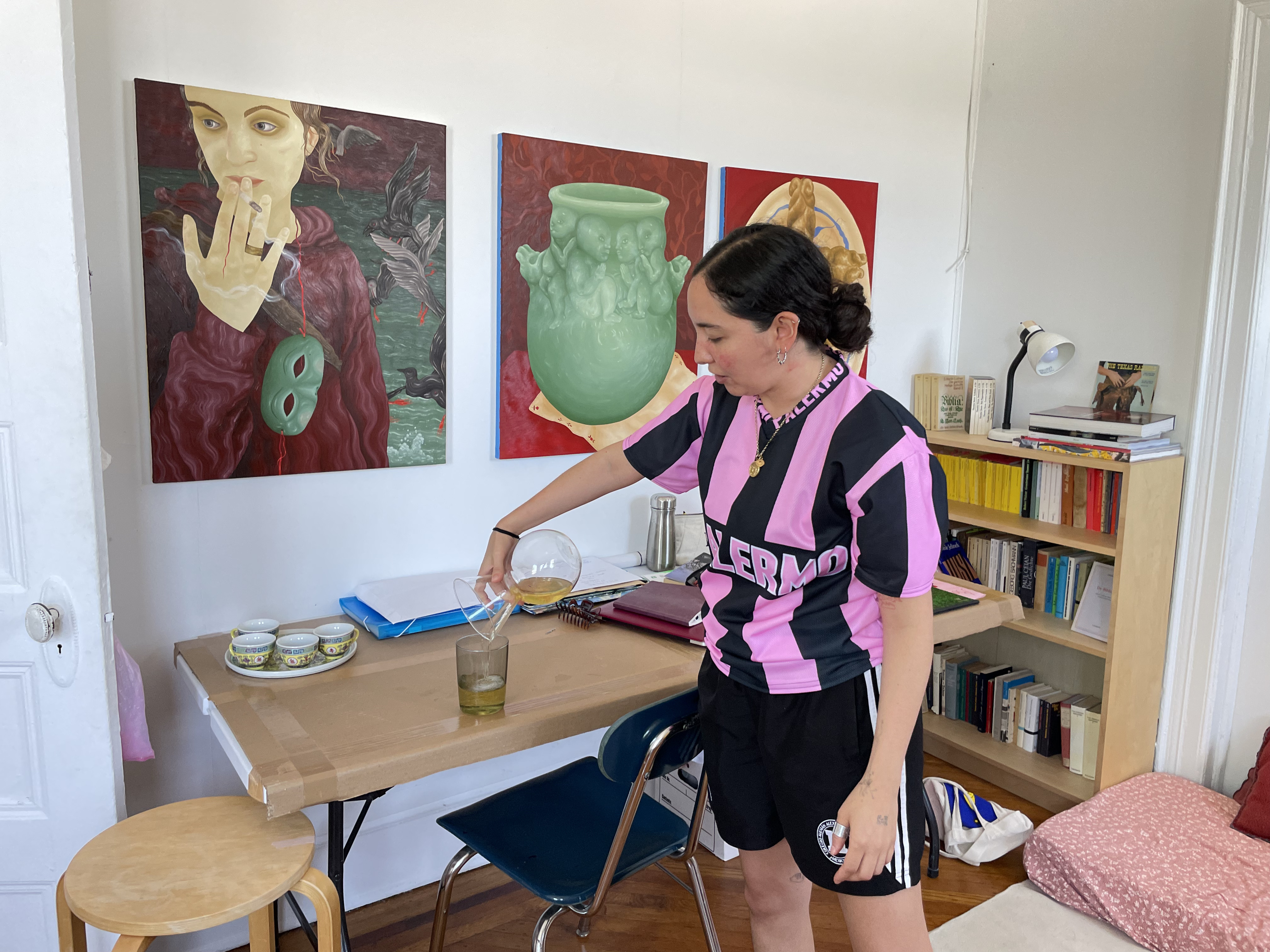
Site Visits
A notable exhibition I got to see was “Amerika” at CARA by the Venezuelan Javier Téllez, which commissioned a film starring migrant non-actors in a fiction that emulated Charlie Chaplin’s comical social commentary.
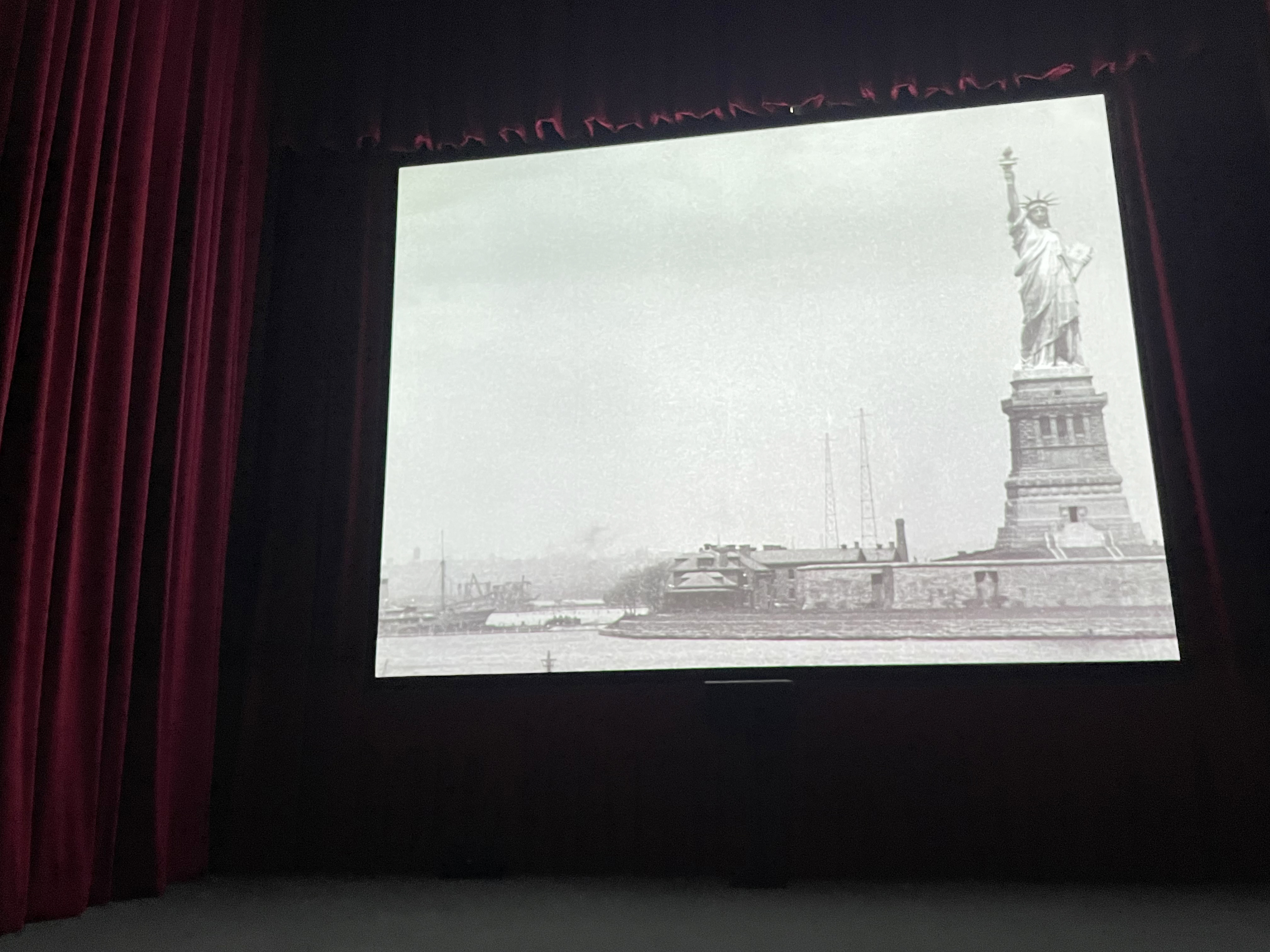
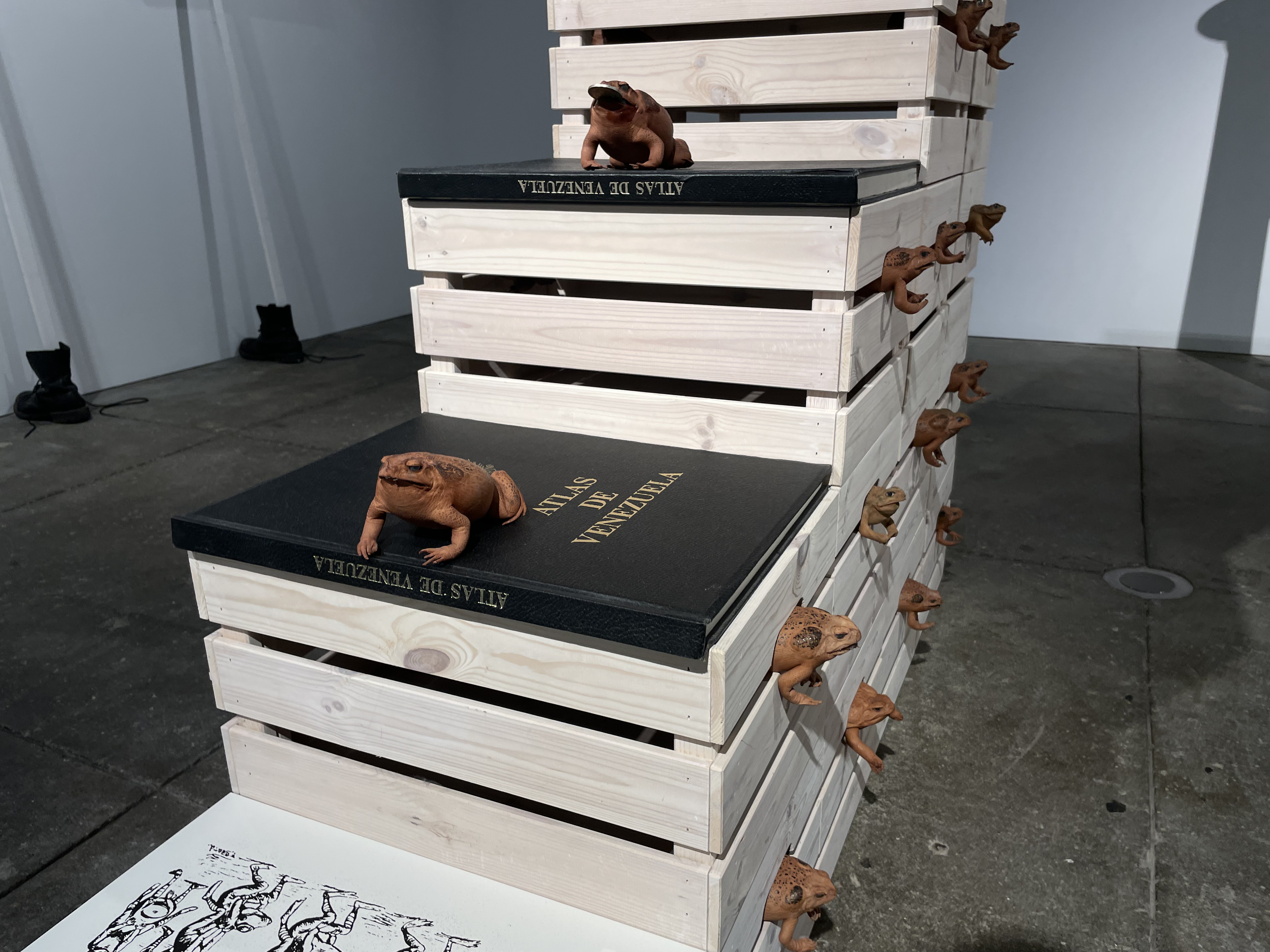
People from all over South America congregated for a sound performance at the Lower East Side outpost of Peruvian gallery Revolver for the inauguration of “Sanctuaries of Fire”, a survey of Latin-American emerging artists by the curator from Domincan Republic, Dulcina Abreu.
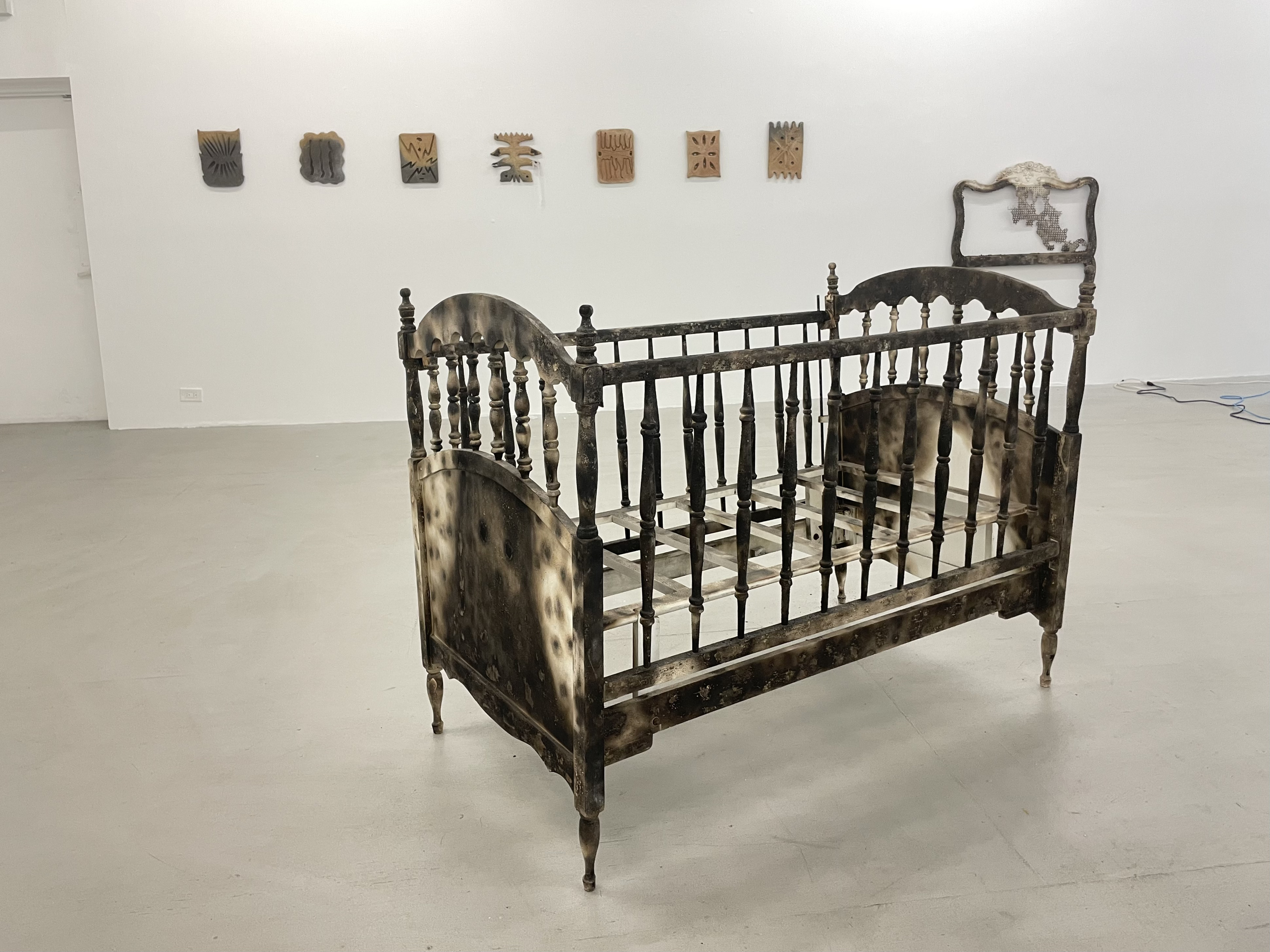
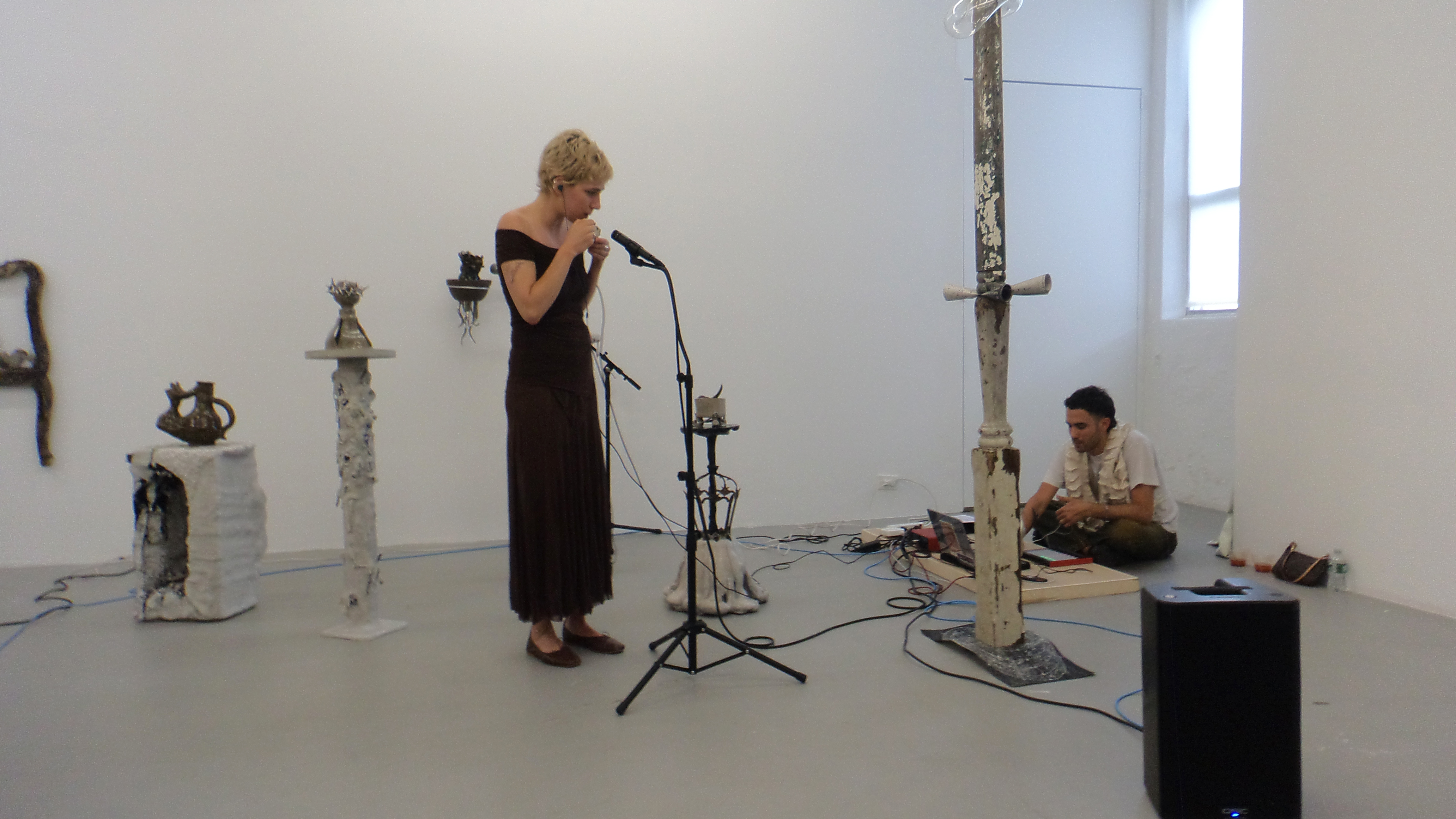
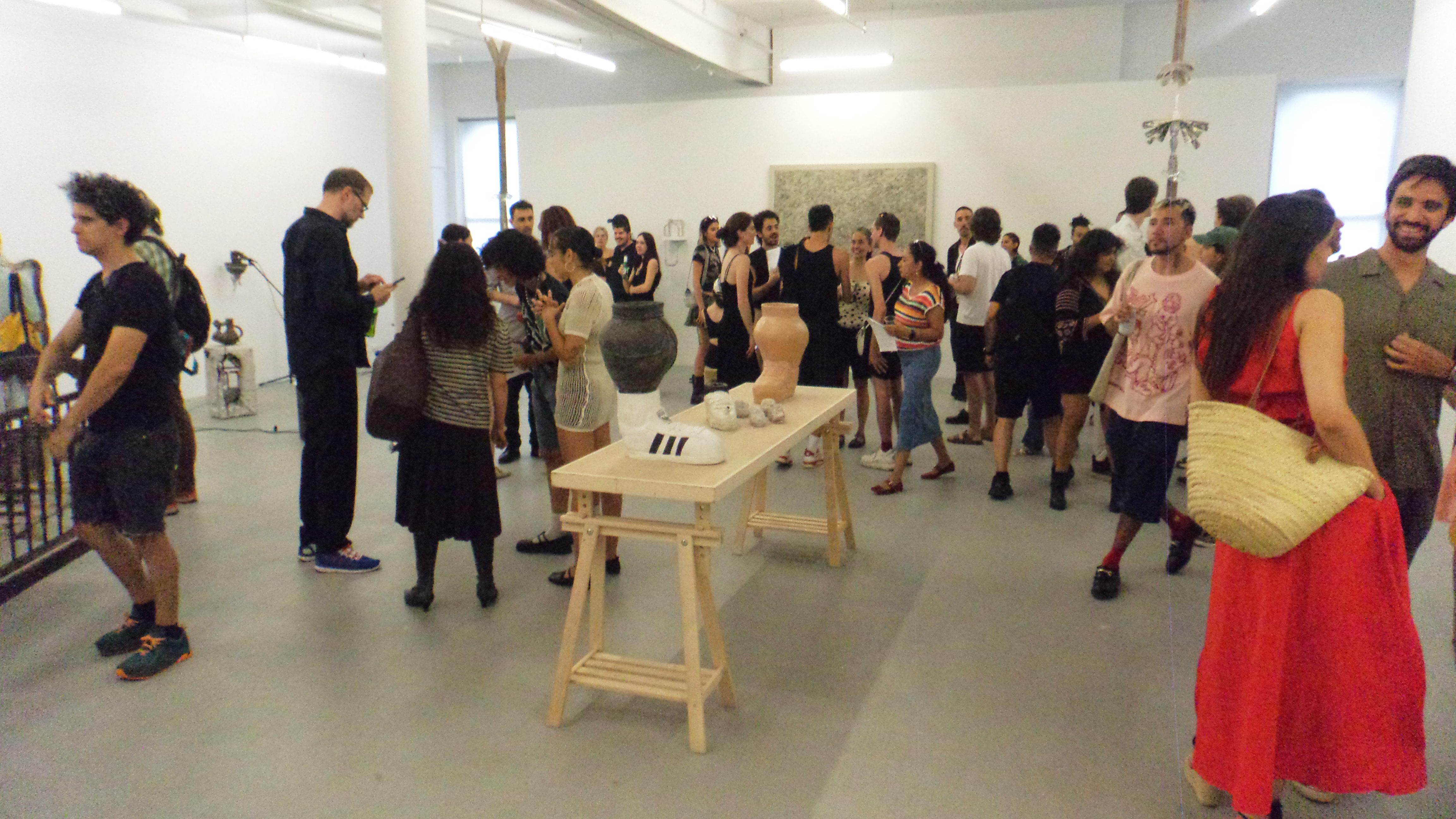
The most poignant impressions were made at the solo exhibition of Habana-born Carlos Martiel’s at Museo del Barrio, a show that outlined the visceral endurance performances he has put his body through to pose questions about colonialism, migration and race.
